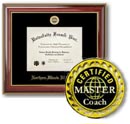|
Content: Leadership Development Model and
coaching techniques, leadership and behavior change model, leadership
behavior
change coaching techniques and leadership development models, global
leadership development coaching tools, cross
cultural coaching professional development, leadership
behavior coaching models and
techniques, the leadership behavior model and coaching leadership
development model, coaching, corporate
leadership behavior change, coaching techniques, executive coaching techniques,
leadership behavior coaching, executive leadership behavior models, career coaching , professional development, cross cultural
coaching and leadership
behavior
|
|
|
|
|
|
|
|
Certified
Global Leadership Master Coach Course - Notes:
Global Leadership Development -A Behavioral
Coaching Approach
-Achieving
Leadership Behavior Change with validated Coaching Techniques
©
(includes extracts from book 'Behavioral Coaching' by Zeus and
Skiffington -published and copyrighted by McGraw-Hill, New York)
|
| |
| |
|
|
Leadership Behavior -global leadership development coaching
Too often in organizations leaders are hired or
promoted for their technical expertise and fail because of their
behavior competencies. Behavior competencies are not innate
talents, but learned abilities, each of which has a unique
contribution to making leaders more resilient, and therefore more
effective. Behavior competencies control the leader's / executive's
ability to perform, get along with others, adapt to changing
situations, and other issues.
The
difference between technical and behavior competencies
Technical competencies are usually learned (in an
educational environment or on the job) whereas behavioral
competencies (self-awareness, self-management and work habits and values)
are typically learned through life experiences.
Behavioral
competencies are the processes or control laws that use
the technical competencies to achieve and/or maintain goals.
Traditional
global leadership development fails to deliver
Traditional
global leadership development, build around cultural awareness
programs, falls well short of developing behavior
competencies. Coachees
are given direction about what to be prepared for, how to do
something another way, what they may need to change etc. The
"one size fits all", simplistic approach to
developing purely technical competencies / 'hard skills' is
ineffective as it ignores our individual behavioral patterns that
control the execution of the 'hard skill'.
In traditional global
leadership training the participants shortly revert to habitual
patterns at the conclusion of the training event. It's an
expensive venture for a short-term "buzz." Thus, the challenge
for leadership development professionals is to enhance
organizational effectiveness with a behavioral change and learning
model that strengthens and sustains individuals in their behavioral competencies.
Profit Eroding Behaviors
Any leadership or management behaviors that negatively impact the
effectiveness of an organization are Profit Eroding Behaviors.
The negative impact of an organization's global leaders with profit
eroding behaviors is enormous. Profit Eroding Behaviors are not just
dangerous to the individuals' career but also directly impact the
bottom-line performance, profitability and future of the
organization they work in.
The need for an integrative behavior
based hiring and coaching platform
With a serious
global leadership shortage impacting most organizations for the
last 3-5 years, and the prospect of continued shortages, many
organizations are taking a more strategic approach to hiring and
retaining experienced, 'culturally alert' leaders.
Any cross-cultural skill development requires a model for
sustainable learning. For any sustainable learning to occur
it must be based upon validated, behavioral scientific coaching
models and associated accelerated behavioral change techniques.
|
|
|
|
|
|
|
The Coaching Model
Professional
leadership developers require two central coaching models to build their
programs around: a Process Model and a Core Behavioral Model: Leadership
developers need to be taught how to construct successful programs by
using the below framework to create customized, proven coaching models:
1. The Process Model - The Behavioral
Coaching Process Model differs significantly from
traditional, simplistic and theoretical coaching approaches as
it only uses validated, robust psychological, definitive modeling
proven in the real-world workplace. This critical difference
allows its users to achieve genuine, lasting, measurable
change and growth.
2. The Core Model - The Core Behavioral
Aspects Model predicts behavioral / learning
change by identifying the core behavioral aspects (thinking,
beliefs, attitudes, values etc) that control the outcome. The
Behavior Aspects Model differs significantly from
traditional, simplistic coaching approaches as it only uses
evidence-based behavior change techniques and tools to provide
behavioral feedback and a action plan.
Senior management need the tools and skills to hire well and build loyalty.
By using behavior based competencies in their selection
(interviewing/hiring and assessing) and development
(coaching) processes, organizations are able to build a powerful integrative,
systematic foundation for their future.
Many vital behavior /
psychological-based assessment instruments and tools a leadership
coach requires are only available to coaches trained and mentored
by a facilitator who is also a licensed clinical psychologist. The
Institute's
international,
fast-tracked, 4 Day,
Small
Group
Certified
Master Coach Course
meets the
critical needs for H.R., L & D and other professionals engaged
in leadership development to be trained and mentored in the use of
validated, reliable psychology-based global leadership models,
templates, tools and techniques.
©
Behavioral Coaching Institute
 -
Global
Leadership Development
-Intercultural
Solutions
..
more -
Global
Leadership Development
-Intercultural
Solutions
..
more
|
|
|
|
 |
|
|
|
|
|
|
|
Content: leadership
behavior and leadership development model and
coaching techniques, leadership and behavior change model, leadership behavior
change coaching techniques and leadership development models, global
leadership development coaching tools,
cross
cultural coaching professional development, leadership
behavior coaching models and
techniques, the leadership behavior model and coaching leadership
development model, coaching, corporate
leadership behavior change, coaching techniques, executive coaching techniques,
leadership behavior coaching, executive leadership behavior models, career coaching , professional development, cross cultural
coaching and leadership
behavior
|

